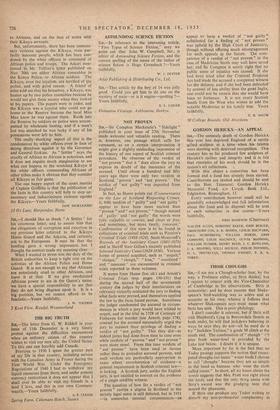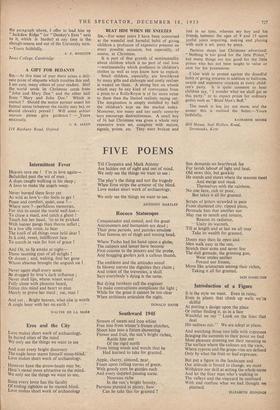THOSE CHOUGHS am not a Chough-scholar (nor, by the way,
a Professor either, as Strix thinks), but I rejoice to concur with the Vice-Chancellor of Cambridge in his observations. Strix is monocular; and he does assume that Shake- speare's bird-watching was as active and as accurate as his own; whence it follows that whatever Shakespeare says must mean what Strix has seen. This is poor philology.
I don't consider it relevant, but if Strix will visit Shepherd's Crag in Borrowdale (hotels at both ends), he will find jackdaws behaving in ways he says they do not—all he need do is try "Jackdaw Terrace," a grade M climb at the south end. The combination of " chough " (?) plus fresh water-fowl is provided by the Lake just below. I doubt if it is unique.
More important by far is the fact that no Tudor passage supports the notion that russet- pated choughs can mean" water birds I choose to call ' choughs' because they are as simple in the head as humans who wear the cloth called russet." In short, all we know abOut the words suggests that Mrs. Pratt was right about the birds, and that the only thing amiss with Strix's award was the grudging tone that sauced the pheasants.
If Strix can produce any Tudor writing to disturb my non-professorial complacency in the paragraph above, I offer to lead him up " Jackdaw Ridge " (or " Donkey's Ears " next to it, which is harder) at any time in the chough-season and out of the University term. —Yours faithfully,











































 Previous page
Previous page